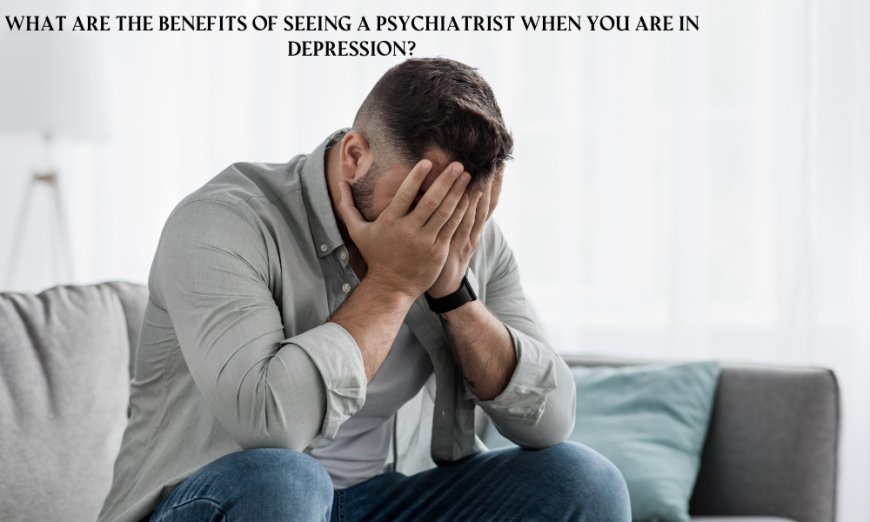What Are the Benefits of Seeing a Psychiatrist When You Are in Depression?
Discover how a psychiatrist can help with depression treatment, improve your well-being, create effective plans, and provide the support you need for recovery.

Depression is a complex mental health condition that can significantly impact your overall well-being. In some cases, the assistance of a psychiatrist is necessary, especially when the condition has advanced or when specialized medical treatment is required. However, it can be challenging to determine whether to seek help from a psychiatrist or a psychologist.
If you suspect that you’re experiencing symptoms of depression, the first step is to consult a hws center or mental health professional. They can help assess the severity of your condition and guide you toward the appropriate type of care.
In this blog post, we’ll explore how consulting a psychiatrist can help you manage depression effectively.
1. Improving Overall Well-Being
Depression often affects both mental and physical health, leading to feelings of emptiness, sadness, and hopelessness. A psychiatrist plays a crucial role in depression treatment, helping you regain a sense of balance and emotional stability. They focus on your overall well-being, offering tools and strategies to alleviate symptoms and improve your quality of life.
2. Identifying the Root Cause
Psychiatrists specialize in understanding the underlying causes of depression, whether they stem from biological factors, life experiences, or a combination of both. Identifying the root cause is crucial for developing a treatment plan tailored to your specific needs. This in-depth evaluation enables more effective and sustainable recovery.
3. Creating an Effective Treatment Plan
Treatment for depression isn’t one-size-fits-all. Psychiatrists take a multi-faceted approach, combining different therapies, medications, and advanced treatments like Transcranial Magnetic Stimulation (TMS) based on individual needs.
- Medications: Prescribed when necessary to balance brain chemistry and reduce symptoms.
- Therapies: Cognitive-behavioral therapy (CBT), psychotherapy, and other techniques to address thought patterns and emotional responses.
- TMS: A non-invasive treatment that uses magnetic fields to stimulate specific areas of the brain associated with mood regulation.
This personalized approach ensures that you receive comprehensive care tailored to your condition.
4. Ensuring Confidentiality
When you visit a psychiatrist, confidentiality is a key aspect of the care provided. Your personal information, medical history, and discussions remain private unless you consent to share them. This assurance helps create a safe environment where you can openly discuss your feelings and challenges without fear of judgment.
5. Access to the Right Medications
Psychiatrists are medical doctors who specialize in mental health, which means they are well-versed in prescribing and monitoring medications. They understand how medications interact with brain chemistry and can adjust dosages to ensure effectiveness while minimizing side effects.
6. Preventing Severe Consequences
Left untreated, depression can lead to severe outcomes, including chronic fatigue, strained relationships, or even suicidal thoughts. By seeking timely help from a psychiatrist, you reduce the risk of these complications. Early intervention can significantly improve recovery outcomes and help you regain control over your life.
Final Thoughts
Depression is a challenging condition, but you don’t have to face it alone. A psychiatrist can provide the guidance, support, and medical expertise you need to overcome depression and reclaim your well-being
